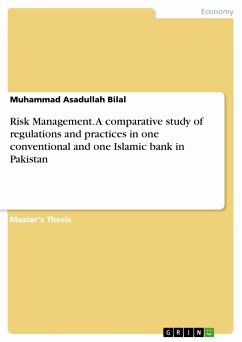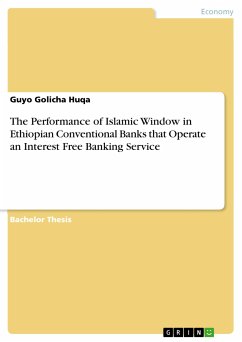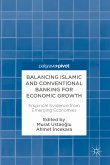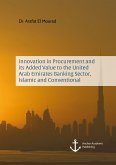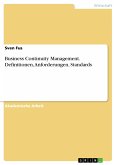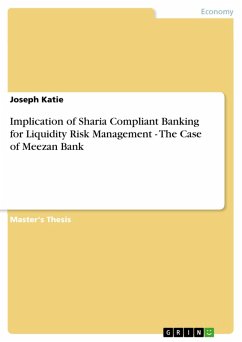Master's Thesis from the year 2018 in the subject Business economics - Banking, Stock Exchanges, Insurance, Accounting, grade: B, , language: English, abstract: The purpose of this research study is to figure out the differences in rules/regulations and practices regarding risk management in Islamic and conventional banks in Pakistan. Keeping in view the research questions, the nature of this research is a qualitative case study. The findings of the study reveal that there exists a substantial difference between Islamic and conventional banks in risk management practices, risk identification, liquidity risk analysis and risk governance. Islamic bank is performing competently in liquidity risk analysis, whereas, conventional bank is competent in risk management practice, risk identification, and risk governance. The risk management, risk monitoring and reporting, and liquidity risk analysis are weak in Islamic banks. Whereas, risk analysis and assessment are weak in conventional banks. Due to lack of risk management training and limited knowledge of risk management practices, understanding of risk management practices is weak in Islamic bank. The study also reveals that in terms of rules and regulations, there is no proper institutionalisation of Islamic institutions regarding risk management as compared to conventional banking where the risk management practices are institutionalised by Basel Committee on Banking Supervision.
Dieser Download kann aus rechtlichen Gründen nur mit Rechnungsadresse in A, B, BG, CY, CZ, D, DK, EW, E, FIN, F, GR, HR, H, IRL, I, LT, L, LR, M, NL, PL, P, R, S, SLO, SK ausgeliefert werden.

